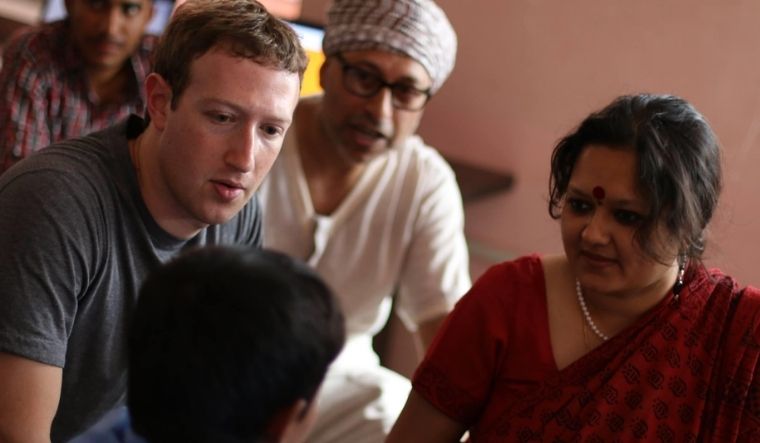
“Connecting 1 billion people is not easy, but that should not deter us from building an internet that belongs to everyone. Together we can and must find a path that helps everyone get connected—a path that is fair, transparent and sustainable,” Ankhi Das, the head of public policy at Facebook India, wrote in an opinion piece in HuffingtonPost on July 2, 2015, at the peak of the social media giant’s Free Basics controversy. Das clearly echoed her employer Facebook founder Mark Zuckerberg’s motto behind the launch of Internet.org—a massive endeavor to connect everyone in the world to the web.
Zuckerberg was sincere in his belief that Facebook was among a small number of players that had the money, know-how, and global reach to fast-forward history, jump-starting the economic lives of the five billion people who do not yet surf the web. Internet.org made its debut in Zambia. However, the eventual fate of Internet.org, later rechristened Free Basics, is a golden lesson in the history of public mobilisation against corporates that act as a gatekeeper in accessing free and equal internet.
Despite the victory of the internet rights’ crusaders in India, what emerged during the whole Free Basics episode was the massive influence that Facebook had enjoyed over the Union government. According to an article in The Guardian dated May 12, 2016, Ankhi Das—its top lobbyist in India—had “uncommonly good access in Delhi’s corridors of power”. Her presence seemed to open any door.
In 2015, Prime Minister Narendra Modi’s government was still in the honeymoon period. In the months after the election, Facebook’s interest in India was evident. Facebook COO Sheryl Sandberg met Modi on her visit to India, which was soon followed by Zuckerberg. Modi returned the favour by making an appearance before a large crowd at Facebook’s Menlo Park headquarters in September 2015, with Zuckerberg and Sandberg at his side.
Just a month after, Zuckerberg was back in India again. The primary motive for his visit was to interact with the tech industry because by then the issue of net neutrality and Free Basics was making everyday headlines.
By 2015, when Free Basics was launched in India, Das was already in her fourth year as the top lobbyist at Facebook India. For a company which considers India as a user-base market, it is always going to come down to how it manages it—through public policy. No doubt, Das has par excelled in her job at Facebook India.
A report by the Economic Times on Tuesday threw more light into Facebook’s lobbying in India, even in the UPA days. Under Das’s tenure, Facebook lobbied in its early days in India, including engaging with non-governmental organisations, lobby groups like the Internet and Mobile Association of India (IAMAI), think-tanks like the Center for Internet and Society (CIS), politicians across party spectrum and ministers of the earlier UPA government.
Beyond issues like the privacy law, Facebook was involved in “coalition” meetings in the Supreme Court case challenging Section 66A of the IT Act.
Das is also a prominent public speaker and columnist. In 2017, she wrote an essay, Prime Minister Modi and the new art of Public Governance, praising the prime minister. The essay was published on Modi’s personal website.
When she joined Facebook in 2011, she came with an impressive career record with over 15 years’ experience of handling public policy and regulatory affairs in the technology sector. A graduate from Loreto College, University of Kolkata, Das did her post graduation in international relations and political science at Jawaharlal Nehru University during 1991-94.
Prior to her role at Facebook, Das was working at Microsoft India as its director of public policy, legal and corporate affairs. She was responsible for handling strategic public policy projects and regulatory affairs for the company.
According to a report by the magazine Down To Earth published on August 5, Microsoft, during her tenure, had funded FICCI to hold a roundtable on intellectual property (IP) matters for judges in Maharashtra, many of whom were hearing cases of IP crimes such as piracy. The report cites proof of emails exchanged between FICCI officials and Das, who was then the director of public policy, legal and corporate affairs, of Microsoft India. The same report also says that Microsoft, which was one of the litigants in IP cases in courts in Maharashtra, agreed to pick up a tab for Rs 8 lakh against the Rs 18 lakh demanded by FICCI for funding travel and accommodation for the participating judicial officers.